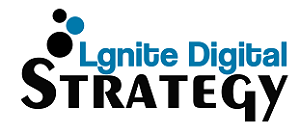Nowadays, marketing campaigns need to be more than a few snippets of catchy text. Customers have grown tired of the same old clichés and are looking for substance in advertising when evaluating brands. To capture customer attention, you’ll need to get them on your side by establishing trust with them through genuine interactions that connect at an emotional level.
Social proof is one way to do so. It is one of the most effective ways of fostering new business as well as a sense of loyalty and belief.
It is a psychological phenomena in which a person imitates another’s conduct in order to reflect what they believe is appropriate behavior in a certain setting. It’s a basic course in human behavior. That’s why, before going to a new restaurant, we read reviews beforehand.
It’s what fuels FOMO or the Fear Of Missing Out — a behavior that many people, especially millennials can relate to. Consequently, may marketers and advertisers capitalize on this emotion to promote their products and services.
What is Social Proof?
It is founded on the concept of normative social influence, which asserts that others would conform in order to please, resemble, or be accepted or have a sense of belonging.
When you’re on a landing page and read testimonials from someone in the business, that’s social proof. When you’re looking at a pricing page and find that a creative agency is already using a tool, it’s not only validation but also an indication of how cost-effective their product or service is.
In essence, it’s using third-party influence to persuade potential buyers.
Social Proof = Branding
When it comes to social proof in the context of branding, we have seen a lot of things change over time. In fact, when examining trends from 2012 versus those from 2021 there is an indication that there may be some major shifts in how people perceive brands and what they value most.
Investors and media alike are starting to recognize this new paradigm. With the implementation of social proof as a differentiator on any given product or service, this is where brands will start to understand how they need to adapt to create and support their own social communities.
Through 2021 we will see a continued shift in branding where the focus shifts from the individual brand’s target audience, onto the community itself. This will be based on an understanding of what social proof concepts are most valuable and how customers can interact with that information.
These new brand standards will be used to design a number of community focused features. Such features will be implemented into products and services through 2021, but more importantly they will eventually become a natural part of the way we live our lives.
Effective Social Proof
In branding initiatives, there are a variety of strategies to use social proof efficiently. The key is to remain understated and avoid sounding boastful.
When you share social proof with your audience, it should be presented as a tool for their benefit—not as a way to simply prop up the brand or form of ego-stroking.
Social proof’s advantages go far beyond brand recognition and trust. It can also help you rank higher in Google because Google likes to see examples of social proof on a company’s website. It is also a useful asset for your social media efforts because it can be quickly shared across multiple platforms.
Above all, for social proof to be effective, it must appear genuine. You must develop consistency and trust with your audience in order to do so. After that, you can determine what type of social proof you’ll implement.
Proof from Customers
The testimony of people who have already used your product are used as user social proof. They’re basically giving your audience a thumbs up and stamping your business with their approval. Since it involves real individuals and their genuine thoughts, this is the most sought-after type of social proof.
Proof from Experts
Expert social proof boosts a product or service by leveraging the authority of industry leaders. A good example would be getting a reputable marketer or advertiser to promote a creative agency.
Proof from the Numbers
The wisdom of the crowd is a social proof theory that explains a vast number of people who are raving about your product. For example, a large social media following could be an excellent illustration. The fear of losing out is a significant motivator for a potential buyer on the fence, and the wisdom of the crowd can play into that emotion.
Proof from the Tribe
Another type of social proof is the wisdom of one’s friends and family, which entails customers putting their faith in the recommendations of others. While this isn’t ideal for large-scale branding campaigns, it can be beneficial to devise a client referral strategy.
Takeaway
Social proof can be one of your most powerful marketing tools, but if you’re not careful, it might backfire. Thus, familiarize yourself with your target customers and consider what kind of social proof might be most effective for them.
When it comes to choosing the right type of social proof for your business, strive to focus on content that reflects the demographic you’re attempting to target. Make it easy for customers to see themselves utilizing your product or service. Avoid utilizing broad brush strokes and refrain from seeming unduly boastful, as both can alienate potential clients and lead to the loss of a sales opportunity.









Leave a Reply